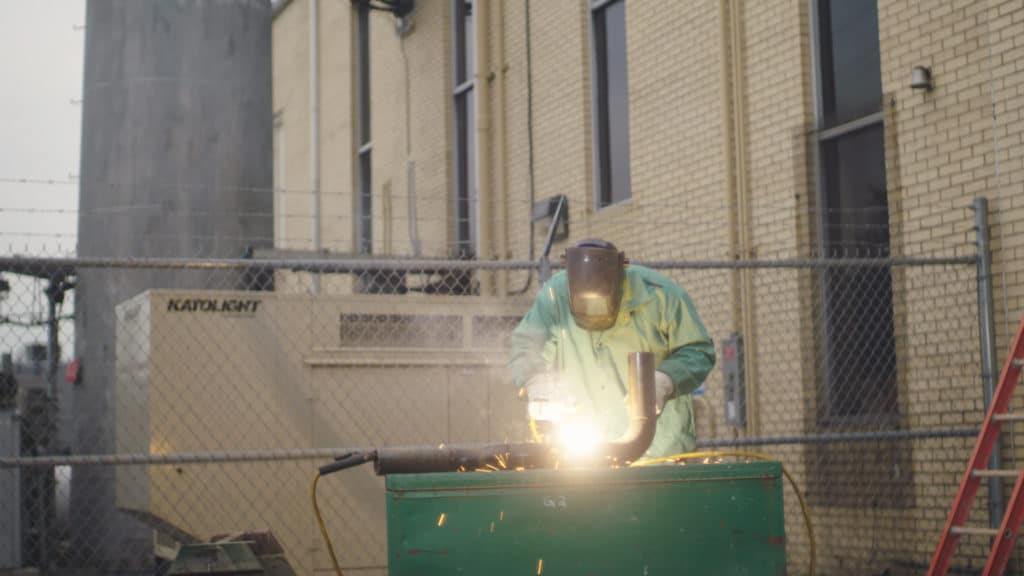Recruiter Career Path
Most people in the recruiting world wouldn’t say they’ve always dreamed about being a recruiter. It’s a job that doesn’t get a lot of air time, especially with younger people. But recruiting at its core is really a special kind of sales. The biggest question becomes, “is recruiting a good career path?” If you’re wondering the same thing, we’re about to break it down for you. So, buckle up & enjoy the ride.
Of The Recruiting Workforce Is Female
Of Recruiters Are Happier With Their Job Than The Average Worker
Of Recruiters Have Less Than 5 Years Of On-The-Job Experience

Get the edge you need to ace your next interview directly from the source.
Download Our Free Interview Packet!
What’s Inside?
Discover our comprehensive interview guide packed with valuable tips and insights to help you navigate every stage of the interview process with confidence. From dressing for success to mastering phone and video interviews, negotiating job offers/salary, and handling resignations, our guide covers it all. Download our interview guide and unlock the secrets to interview success in one convenient package.
SNEAK PEEK
Let’s Get Started.
See If You Have The Potential To Be A Great Recruiter:
people skills
The ability to build impactful and meaningful relationships is essential as a production manager working with employees, vendors, and customers. It’s easy to get caught up in the day-to-day of this position, but it’s important to remain approachable and friendly to maintain these relationships.
curiosity
As a manager you will be responsible for a slew of different things, so it is vital to be organized and very aware of all your moving parts. At times, you will have countless duties on your plate. You will need to be able to effectively and efficiently move from duty to duty.
transparency
Safety should always be top of mind for anyone in the field. As a manager, you are responsible for keeping your jobsite/workplace as safe as possible for not only your own employees but also customers coming in and out of the area.


Recruiter Job Overview
We Think You Have What It Takes To Be A Recruiter… Do You?
Recruiters play an essential role in almost every industry. While not every industry uses external recruiting agencies, every organization must have someone that recruits new talent if they are a growing company. As artificial intelligence becomes a bigger part of the equation, there still doesn’t seem to be any sign that jobs for recruiters are dwindling. Human interaction is always going to be a part of the picture.
Key Requirements To Be A Recruiter:
Recruiter roles and responsibilities are typically consistent between organizations, even across industries. The biggest differences would be in staffing and direct hire recruiting since the recruiting stages and talent pools look quite different. While the bullets below paint an accurate picture of the average recruiting responsibilities, keep in mind that not all job descriptions will include these.
applicant tracking systems
All recruiters utilize an ATS for logging candidate stages in the recruiting process, resumes, contact information, and other notes.
Sourcing
Recruiters begin their process by searching for active and passive candidates in their ATS, job boards, LinkedIn, etc.
Phoning
Once recruiters have a viable list of candidates, they must reach out to them about opportunities that they are suitable for.
Pipeline Management
Regular communication with candidates can help align them with a new opportunity at the right time.
Unsure Of Next Steps To Become A Recruiter?
Here’s what the recruiter career ladder looks like:
Here Are Some Trends We’ve Noticed In The Industry:
Recruiting organizations come and go frequently, but the industry leaders have established their business and brand and are prepared to be in the game for the long haul. Let’s look at the industry trends.
01
Recruiter Trends
In the last five years, recruiter salary has increased by 7%. According to Salary.com, the average entry-level recruiter in the US makes $61,000 annually. A career in recruiting can be very lucrative if you focus on the key skills for success.
02
Hiring Trends In Industry
The Bureau of Labor Statistics projected 5% job growth for recruiters between 2018 and 2028. Currently, there are close to 270,000 recruiters that are employed in the United States and almost 40,000 open jobs for recruiters.
03
Related Jobs
Look out for these similar job titles:
So, How Much Can You Earn?
Let’s Talk Recruiter Salary
Recruiter salary can range between $59,000 and $115,000 based on years of experience, expertise, and leadership responsibilities. Obviously, that is quite a large range, and we know how daunting it can feel starting out.
The breakdown below might help you digest the wide compensation range:
Entry level avg. base salary: $59,066
Mid-level avg. base salary: $74,188
Senior level avg. base salary: $120,958
These five cities have the highest average recruiter base salaries:
These five states have the highest average electrician salary:


unsure Of Next Steps To Become An Electrician?
We’re Here to Help!

Let Us Show You Why NCW Should Be A Part Of Your Journey To Becoming A Recruiter:
As our company continues to pursue big growth goals, we are constantly in search of both experienced and inexperienced recruiters to join our team. If you are driven, confident, personable, and honest, you could be a great recruiter here. Regardless of experience, if an opportunity to recruit at NCW gets you excited, we want to connect with you!
Our recruiters have years of experience working with top talent, just like you. Our goal is to get to know you, understand your aspirations, chat through your experience, and connect you with a position that aligns with your wants and needs.
Connect To Opportunitiy
Our team puts your resume directly in front of hiring managers’ eyes.
Expanded Network
NCW expands your network to uncover opportunities that may not have been available otherwise.
By Your Side
Our recruiters prep you for the interview process and guide you through every step of the way.
Recommended for you:
Want to see how NCW can help you with you job hunt?
Let’s Start The Conversation
